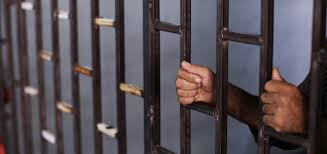Justice Minister Hisham al-Shaer acknowledged that there were many “wronged” people in the prisons as a result of malicious reports that had spread throughout the war.
Shaer told Al-Ayyam that there were a number of truthful personal allegations in some cases, but that judges did not have all the available evidence. He said that there were agencies that were reviewing these allegations before they reached the courts. “We cannot prevent anyone from making a claim.” He said that the sorting process was completed according to the Prisons Directorate, and that the Justice Ministry had nothing to do with it.
Shaer added that holding the judicial conference in Aleppo under this slogan required a basing in reality and that they consider their capabilities with much insight and awareness. He said that a sound legal system and developed legislation would fill the gaps and fill the cracks that produce corruption. He said that the Ministry had taken a great interest in the informational, documentation and archival side.
Lawyer Hassan al-Hassan said that judicial corruption had spread during the war, with the methods varying, according to him. “For example, judges might take either financial or in-kind bribes,” he added that the financial route was the most widespread at the moment, especially with issues related to terrorism, given the ease of dealing with them to achieve the highest level of secrecy and vigilance. The money is placed into a paper envelope, and takes into account the judge’s feelings to ensure they are tactful in the dealing, and then it is directly handed over. In some cases, the judge refuses the money, saying it is a small amount.
Hassan said that every one of these corrupt judges had a key, and each key had a secret number and they would not open any doors without paying this amount. The key could be a clerk, attorney, or lawyer, or one of the disputing parties who has a shared relation with the judge, such as a friend or relative.
The lawyer Mohamed Dajj says that the judiciary is suffering from a sort of collapse, adding that corruption has spread among some judges and lawyers.
Dajj said that, “The independence of the judiciary from the executive authorities is just ink on paper. The judges are appointed according to nepotism.”
Dajj said that total reform in the judicial system is needed, and that judges needed to have knowledge, neutrality, integrity and diligence, so that the Arab judiciary can emerge in its own right. He said that Syria is still rich in legal scholars in terms of skills and knowledge.
This article was translated and edited by The Syrian Observer. Responsibility for the information and views set out in this article lies entirely with the author.


